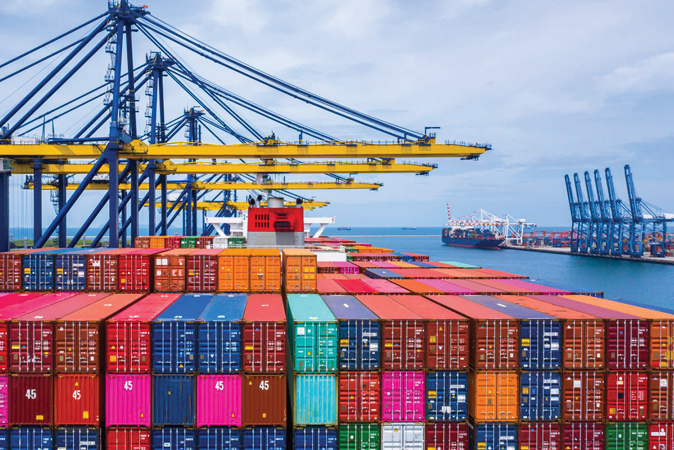|
By Amanda Hampton, Associate,
Nessle & Blakey
As 2023 draws to a close, the White House is focusing on opportunities to maintain stable supply chains to prevent future disruptions similar to the challenges experienced during the pandemic. On November 27, the Biden-Harris Administration announced nearly 30 new federal agency-level initiatives to strengthen supply chains.
The actions were announced during the inaugural convening of the new White House Council on Supply Chain Resilience, which is co-chaired by the National Security Advisor and National Economic Advisor and includes the administration’s various secretaries. During the meeting, Council members discussed the importance of supply chain resiliency to protect economic and national security, additional opportunities for agency-level collaboration, and the importance of engagement with private sector partners to diversify critical supply chains and strengthen U.S. competitiveness.
The Council will conduct its work in the forthcoming years to complete the first quadrennial supply chain review by December 31, 2024. The Council will update criteria on sectors, industries, and products critical to national and economic security. Once new criteria are set, the Council will annually update the list of critical sectors.
In conjunction with the White House announcement, the U.S. Department of Transportation (USDOT) formally launched the Office of Multimodal Freight Infrastructure and Policy (Freight Office) – approximately two years after it was established in the Bipartisan Infrastructure Law (BIL). USDOT appointed Allison Dane Camden to serve as the Deputy Assistant Secretary for Multimodal Freight. Allison Dane Camden most recently served as the Deputy Assistant Secretary of Multimodal Development and Delivery for the Washington State Department of Transportation.
The formation of a multimodal Freight Office was championed by Senator Cantwell (D-WA), who authored the BIL provision and tasked the office with carrying out the national multimodal freight policy, administering multimodal freight grant programs, facilitating the exchange of information related to freight issues between the public and private sectors, conducting research to improve multimodal freight mobility, assisting states and cities in developing supply chain expertise, and serving as liaison to coordinate with other federal agencies.
Secretary of Transportation Buttigieg explained that the Freight Office would focus on advancing the Freight Logistics Optimization Works (FLOW)
|

initiative to help “companies and ports make better-informed decisions — so that they can move goods more efficiently and keep costs down for Americans." FLOW is an industry information exchange initiative to facilitate data sharing between a wide range of industry partners, including Walmart, Consolidated Chassis Management, Prologis, Georgia Ports Authority, C&K, Hapag-Lloyd, BNSF, and FedEx. USDOT shared a new milestone for the FLOW initiative as part of the launch announcement, explaining that data provided through the partnership is beginning to inform supply chain decision-making.
Outside of USDOT activities, the Department of Homeland Security (DHS) is also focusing on strengthening supply chains with the launch of a new Supply Chain Resilience Center. The Center will focus on improving supply chain resiliency for critical infrastructure used for delivering essential services. To accomplish this goal, the Center plans on collaborating with port authorities, USDOT, and other industry partners to identify security vulnerabilities at seaports and develop mitigation strategies. Secretary of Homeland Security Mayorkas will host a roundtable in the coming weeks with representatives from port operations, cargo logistics, U.S. importers, and U.S. exporters to receive feedback on the Center’s work and how it can best support their operations. In 2024, the Center will collaborate with other federal agencies and foreign governments to test the resiliency of critical cross-border supply chains.
The Department of Commerce announced a new Supply Chain Center that will integrate industry knowledge and data analytics to develop risk assessment tools. The Center will partner with the Department of Energy and other stakeholders to analyze the supply of clean energy. In the new year, the Department of Commerce will host a Supply Chain Data and Analytics Summit that will convene public and private stakeholders to discuss supply chain risk assessment tools and opportunities to improve data flows.
Nessle & Blakey, Ltd. is a public affairs and
communications consulting firm based in
Washington, DC.
|



